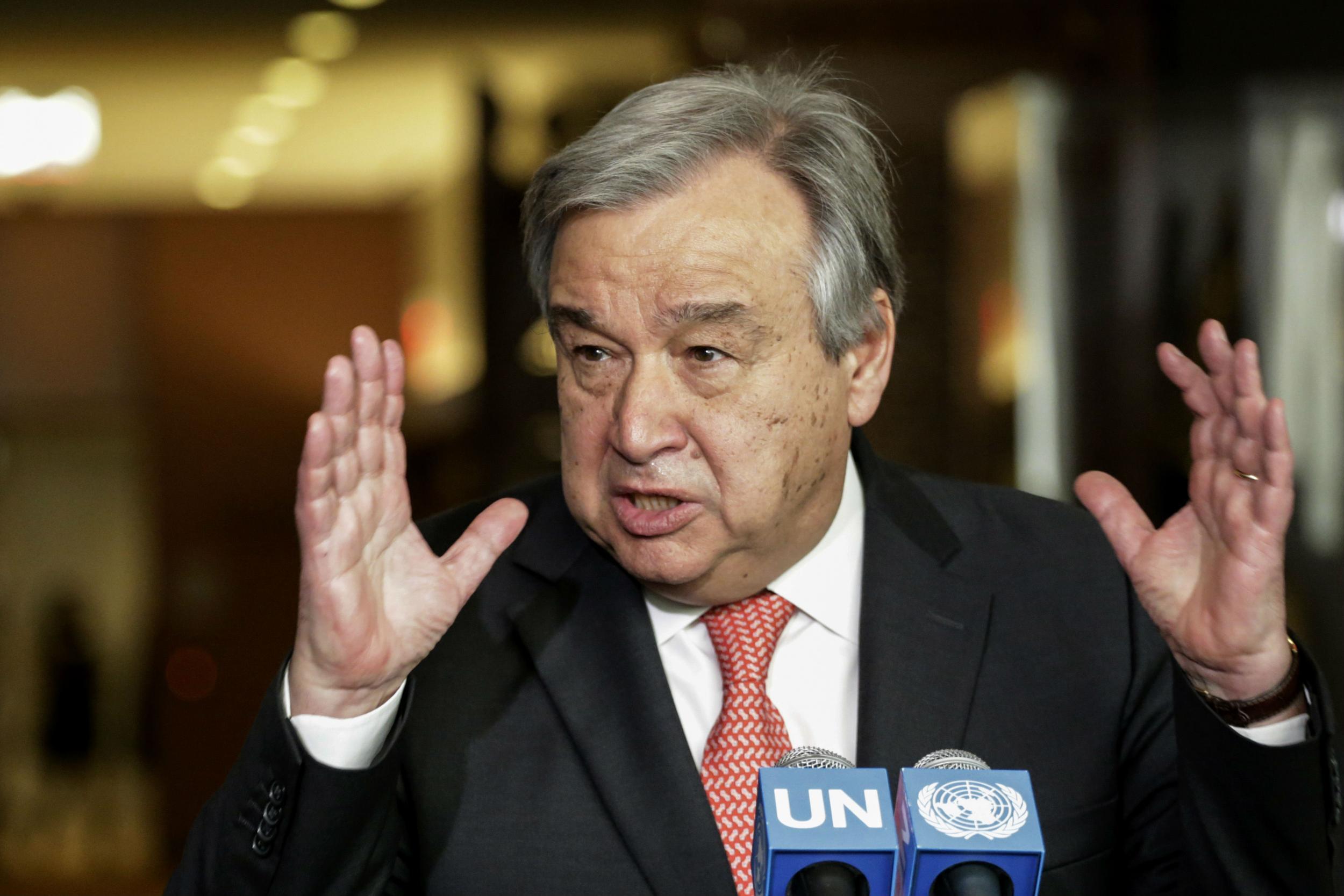Results of super secret vote at United Nations on next Secretary General leak out almost instantly
While Antonio Guterres looks to be in the driving seat, his candidacy could yet be killed off by a veto-wielding country

The results of secret voting in the United Nations Security Council on a new Secretary General were almost instantly blown open on social media on Friday, angering countries that were not directly participating, diplomatic sources said.
Barely minutes after the fifteeen members of the UN's highest body made their preferences known from the line-up of candidates, the details of the voting, which is meant to be confidential, were leaking out.
It quickly became apparent that the former Prime Minister of Portugal, Antonio Guterres, had established a solid, yet not necessarily unassailable, lead over his ten rivals.
The results suggested that the world's top powers, notably the US and Russia, are still far away from coalescing around a single candidate to replace Ban Ki-Moon, whose second term as Secretary General expires at the end of this year. It throws in doubt the ability of the Council to agree on a single name by the end of October as currently stipulated on its schedule.
The muddle could possibly leave the door open for a surprise candidate to jump into the contest at the last moment with many eyes already on Kristalina Georgieva, a Bulgarian economist currently serving as European Commissioner for Budget and Human Resources.
This was the second straw poll on replacing Mr Ban, in which all members of the Council anonymously expressed opinions about the various candidates, by marking them with an "encourage", "discourage" or "no opinion" notation.
The Prime Minister of Portugal from 1995 to 2002 and until recently the UN High Commissioner for Refugees, Mr Guterres fared better than anyone harvesting 11 'encourages'. However, two members cast anonymous 'discourages' against his name. If either of those countries is a perment Council member with veto power, his candidacy could still be doomed.
"This is going to go on for a while," a western diplomat remarked later on Friday, noting that in a first straw poll last month no member offered any resistence to Mr Guterres. "We really need to see who those two countreis are," the diplomat said.
The leaking of the results was especially dismaying for those countries with candidates up for the UN's top job but who are not on the Security Council. Thus Argentina, whose foreign minister, Susanna Malcora, is heavily favoured by the United States, will have learned of the results through postings on Twitter rather than by the usual diplomatic channels in new York.
The same was true in the case of Irina Bokova who is also from Bulgaria, another country that currently is not seated on the Council.
As it came out, the straw poll seemingly has also done nothing to resolve tensions between the US and Russia over the issue. Moscow, which has made clear its preference for an East European candidate and a woman, is thought to be throwing its weight behind Ms Bokova, currently the Director General of UNESCO.
Second place on Friday went to Vuk Jeremić, a Serbian diplomat. That both the first and second spots were occupied by men was a discouraging sign for a broad coalition of countries and advocacy groups that have argued forcefully for a first woman at the top of the UN. Both Ms Malcora and Ms Bokova had enough 'discourages' against their names to imperil their bids for the top job.
At the outset, many countries agreed that a candidate from East Europe and a woman would be preferable, although some western capitals have also made it increasingly clear that it is the qualifications of each candidate that matter the most regardless of where they come from or their gender.
Join our commenting forum
Join thought-provoking conversations, follow other Independent readers and see their replies
Comments
Bookmark popover
Removed from bookmarks